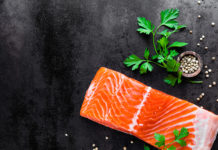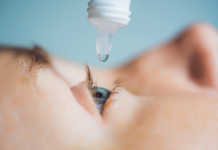
Welcome to a rejuvenating journey where we take a deeper look into the world of fatigue, not as mere bystanders but as active participants in a quest for vitality! Fatigue, that sneaky energy thief, doesn’t just affect us; it ripples through our lives, sometimes leading to vehicular mishaps, dwindling productivity, and less spark in our family interactions. Let’s explore what might be draining your energy and uncover some natural elixirs to rekindle your zest for life.
The Culinary Conundrum: Eating Habits and Hydration Hijinks
Food: Your Fuel for Thought and Action
Think of your body as a high-performance vehicle. What you fuel it with matters immensely. Your brain, a maestro in managing moods and neurotransmitters, along with your sleep cycle, hormonal symphony, digestive dynamics, and immune system, all dance to the tune of your nutrition.
Eating Fast and Loose: Rushed meals and culinary chaos with irregular timings can leave you feeling more sloth than cheetah.
The Power Plate: Imagine a plate filled with nature’s bounty – grass-fed beef, wild-caught fish, cage-free organic eggs, and a kaleidoscope of green leafy vegetables, all rich in B vitamins. Add a dash of healthy fats like omega-3s in avocados, nuts, and olive oil, and you’ve got yourself a fatigue-fighting feast!
The Sneaky Saboteurs: Beware of processed foods masquerading as quick fixes. They’re often loaded with refined sugars and simple carbs that spike and crash your blood sugar, leaving you in a lull.
Instead, take time to eat regular meals and choose energy-promoting foods such as; those high in B-vitamins (grass-fed beef, wild-caught fish, cage-free organic eggs and poultry, and all kinds of green leafy vegetables) and healthy fats (omega-3 fatty acids, which help to stabilize hormones and your mood—wild-caught fish, seeds, coconut and olive oil, avocados, and nuts). Avoid choosing processed foods high in refined sugar and simple carbs as they can cause a rapid increase in blood sugar followed by a sharp drop, resulting in fatigue. Limit or avoid caffeine and alcohol.
Hydration: The Elixir of Energy
Did you know that by the time you feel thirsty, your body is already sending an SOS for hydration?
- Feeling Thirsty Indicates Existing Dehydration: This is generally true. Thirst is a signal from the body indicating that you need to replenish fluids. By the time you feel thirsty, your body is already experiencing mild dehydration. This is a well-established understanding in physiology.
- Effects of Dehydration: The statement that dehydration disrupts blood flow, oxygen and nutrient delivery, leading to fatigue, mood swings, brain fog, and muscle weakness is accurate. Dehydration can affect the body in these ways. When the body loses more water than it takes in, it can disrupt normal bodily functions, leading to the symptoms mentioned.
- The Hydration Equation (Half Your Body Weight in Ounces): It is recommended to drink half your body weight in ounces of water daily as a simplified guideline and keep in mind that it is not a one-size-fits-all solution. The actual amount of water an individual needs can vary greatly depending on factors such as age, gender, weight, climate, physical activity level, and overall health. The National Academies of Sciences, Engineering, and Medicine suggests a general daily fluid intake of about 3.7 liters (125 ounces) for men and 2.7 liters (91 ounces) for women from all beverages and foods. However, this is a general guideline and individual needs may vary.
the statements about the importance of hydration and the effects of dehydration are accurate, but the specific recommendation for daily fluid intake based on body weight is more of a generalized guideline rather than a precise medical recommendation. It’s always best to listen to your body’s signals and adjust your fluid intake according to your personal needs and circumstances.
The Sedentary Saga: Move to Improve
The Perils of Perching All Day
Sitting for prolonged periods is an open invitation to body aches, fatigue, and even mood swings. It’s like pressing pause on your body’s natural rhythm.
The Exercise Elixir
Regular physical activity is the secret sauce to balancing hormones, improving insulin sensitivity, and enhancing sleep quality. It’s like a natural happy pill, releasing endorphins, boosting stamina, and uplifting your mood. A study by the University of Georgia even found that low-intensity exercise can skyrocket energy levels by 20% and slash fatigue by 65%!
INSUFFICIENT SLEEP
Most adults need between 7-9 hours of sleep consistently, every night, to feel their best, but we know this is not happening for many adults. A survey from 2011 found sleep disorders affect 40% of adult Canadians. Causes of poor sleep include stress, poor diet, consuming caffeine, staying up late, hormonal imbalance, pain, digestive disorders, and family life (babies, children).
Improve your sleep by consuming a low-calorie snack (fewer than 200 calories) that provides easily digestible carbohydrates and protein before bed. The right kind of snack can help boost your levels of the amino acid tryptophan, which your body converts into the sleep-regulating neurotransmitters serotonin and melatonin. Examples include walnuts or pistachios, cherries or cherry juice, rice crackers and almond butter. Avoid spicy foods and caffeinated or alcoholic drinks as these can be difficult to digest and/or be stimulating.
Make changes to your bedtime routine by turning off technology and limiting light exposure with blackout blinds or curtains. A fan or white noise machine may help you sleep. Avoid caffeine and exercise before bedtime as these can cause the body to feel energized and interfere with sleep. Lastly, consider using natural sleep supplements such as melatonin, 5-hydroxytryptophan (5-HTP), and/or L-theanine, to help calm a racing mind and encourage restful sleep and relaxation.
The Nutrient Narrative: Filling the Gaps
When it comes to vitamins, it’s crucial to get the right balance. Here’s a quick guide on some key vitamins and their recommended daily allowances (RDAs):
- B Vitamins:
- B1 (Thiamine): Men – 1.2 mg, Women – 1.1 mg
- B2 (Riboflavin): Men – 1.3 mg, Women – 1.1 mg
- B3 (Niacin): Men – 16 mg, Women – 14 mg
- B5 (Pantothenic Acid): 5 mg (for adults)
- B6: Men – 1.3-1.7 mg, Women – 1.3-1.5 mg
- B12: 2.4 mcg (for adults)
- Folic Acid: 400 mcg
- Biotin: 30 mcg (for adults)
- Magnesium: Men – 400-420 mg, Women – 310-320 mg
- Iron: Men – 8 mg, Women – 18 mg (19-50 years), 8 mg (51+ years)
Remember, these are general guidelines. Individual needs may vary, especially for pregnant or breastfeeding women, and those with specific health conditions. Always consult with a healthcare professional before starting any supplement regimen.
The Sleep Snacking Strategy: Caloric Intake and Ideal Snacks
For a pre-sleep snack, aim for something light and under 200 calories. This snack should combine easily digestible carbohydrates with a bit of protein to aid in the production of sleep-inducing neurotransmitters.
Ideal Sleep-Promoting Snacks:
- Walnuts and Cherries: A small handful of walnuts (about 1 oz) and a cup of fresh cherries. Walnuts are a good source of tryptophan and magnesium, both of which promote sleep. Cherries are one of the few natural sources of melatonin.
- Rice Cracker and Almond Butter: One rice cracker with a tablespoon of almond butter. This combination provides a nice balance of carbs and protein, with the added benefit of magnesium from the almond butter.
- Greek Yogurt with Honey and Banana: A small serving (about half a cup) of Greek yogurt with a drizzle of honey and a few banana slices. This snack offers calcium, which helps the brain use tryptophan to produce melatonin, and the banana adds a soothing carbohydrate.
- Cottage Cheese with Pineapple: Half a cup of cottage cheese with a few pineapple chunks. Cottage cheese is rich in casein protein, which provides a steady supply of amino acids during the night, and pineapple may boost melatonin production.
Remember, the goal is to choose snacks that are not too heavy but provide the right nutrients to promote sleep. Avoid spicy or acidic foods, as they can cause discomfort and disrupt sleep.
By incorporating these specific vitamin intakes and carefully chosen snacks into your routine, you can effectively combat fatigue and improve your sleep quality, leading to a more energized and vibrant life.
The Final Word: Listen to Your Body
Remember, fatigue can be a cryptic message from your body about underlying health conditions. Always consult with your healthcare provider for a tailored approach to your energy needs.
So, there you have it – a whirlwind tour through the world of fatigue. Armed with this knowledge, you’re now ready to reclaim your energy and live life with renewed vigor!













